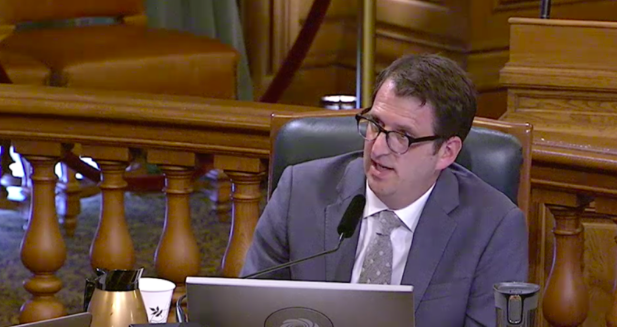Mayor London Breed’s assertion that a homeless-youth drop-in center in the Haight was cancelled for lack of funds collapsed yesterday as members of her staff told the supervisors that no matter how much money the board provided, the site would not open.
In a hearing before the Government Audit and Oversight Committee, Shireen McSpadden, the director of the Mayor’s Office of Homelessness and Supportive Housing, said that even if the supervisors provided all the money the center needed, she still wouldn’t allow it to open.

The testimony at the hearing, called by Sup. Dean Preston, showed that HSH had promised community members at an Aug. 19 meeting that the center would open in the fall and provide showers, hand-washing, bathrooms, food, and service providers.
The city put out a request for proposals and chose the Homeless Youth Alliance to staff the center.
The site of the proposed center is now vacant. It used to hold a McDonald’s, but the city bought it and it’s slated for a project with 100 percent affordable housing. But that won’t break ground until 2023.
During the height of the pandemic, it was used as a safe-sleeping site—one of the most successful in the city.
But on Oct. 21, Mayor London Breed met with the Cole Valley Improvement Association, many of whose members opposed the drop-in center, and told them “it isn’t going to happen.”
That same day, within hours of the mayor’s statement, Emily Cohen, deputy director of HSH, called Preston’s staffer, Kyle Smeallie, to say that the project was cancelled.
The next day, Preston talked to Cohen, who said there was a “funding gap.” When Preston asked how much that gap was, he told me, she said she didn’t know. She said she didn’t know the full cost of the project, either.
It wasn’t until Oct. 25 that Cohen said the full cost was $370,000.
Preston tried at the hearing to find out when that budget was prepared, and nobody could answer.
McSpadden said that the mayor wasn’t involved in the planning for the site and that the primary reason it was cancelled was a lack of funds. However, nobody in July, August or September said funding was an issue, and Preston noted that if more money were needed he would have sought ways to obtain it.
“Even if we found the money, you couldn’t guarantee that it would open?” Preston asked.
McSpadden: “I could not guarantee if funds were raised we would open the project.”
Later in the hearing, Preston pushed again:
If there’s someone with the means watching the hearing today and calls up and says, that [the gap is] $200,000 if they can show me the numbers are real, I’m willing to write a check, If that happens, is the site according to hsh not opening? regardless of that offer?
Answer: My understanding is regardless of that offer, we would not proceed with the project.
In fact, at this point the site is empty, and the city is spending money on security officers to keep it that way.
Sup. Connie Chan said the situation was troubling:
Frankly, it’s been painful to listen to some of the answers by our city department heads as well as our staff because I think that structurally, the challenges for our city department to do good work, without political influence, is evident along this line of questioning.
I think the elephant in the room is the fact that it seems that there was a good-faith effort to move forward with the pop-up servings transient youth but because of political influence, by the administration, the decision was up ended.
“At the end of the day, the people who made the decision to deny these services to homeless youth get to go home, wash their hands, take a shower, and use the bathroom in private, and the people directly affected by this decision don’t,” said Supervisor Preston. “Our city should be better than this.”





